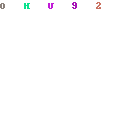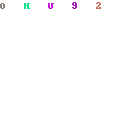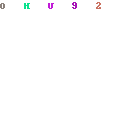Same Troubles Arouse? Have a Look at It
- Files are encrypted and have no way to open it.
- Annoying pop ups won't let you to perform search.
- Randomly titled files are found to escape the deletion by anti-virus program.
- Connects itself to the internet and allows the criminals to extort your personal information.
- Lots of spyware and adware parasites are installed onto your computer, you can see new icons on your desktop.
Get Down to MySuperCheap
MySuperCheap is classified as adware that keeps hammering out popup after popup. MySuperCheap is associated with Yontoo Layers Client, PageRage and other Yontoo related programs, so it has reasons for users to download themselves. Once it is executed, it installs MySuperCheap extension to internet browser whithout your knowledge, and your life is all about fightling against pop ups that come in forms of popups and in-text style links as it nearly blocks you from operating and searching normally.
Usually popup ads about all walks of life, such as hotels, cruises, car rentals, vacations, flights, health, etc. is randomly on the bottom of the page (different on the left and right) and every once in a while clicking on a link redirects you to some search site. It is not the nagging screen that is horrible, what makes the adware notorious is the ability to help unwanted free software containing malicious code install themselves stealthily, which is so destructive that results in irretrievable files and datum since they are encrypted to send to the hacker behind the adware.
In Dire Need of Help Remove MySuperCheap? Manual Guidance Here to Show You Step by Step
1. Go to the Start Menu. Select Control Panel → Add/Remove Programs.

2. Search for searchplusnetwork.com Redirect Virus in the list. Select the program and click Remove button.
3. Remove its browser add-ons Internet Explorer:
a) Open Internet Explorer. Go to Tools → Manage Add-ons.
b) Remove all its components
4.Clear Cache And Cookies – Delete browser data and tracking cookies.
5. Go to the Registry Editor to delete all related entries listed below
a) Click “Start” menu, hit “Run”, then type “regedit” click “OK”.


b) Delete associated files and registry values:
Files:
C:\WINDOWS\system32\spoolsv.exe
C:\WINDOWS\system32\ctfmon.exe
C:\Windows\System32\KernelBase.dll
C:\Windows\SysWow64\KernelBase.dll
C:\Windows\SysWow64\{F942650C-BE61-4A1B-B36C-7F875D7EB002}{D4767EC7-AB58-1F8CE36D1500}
C:\Windows\SysWow64\{0B6B3F7F-4C05-48C4-95C6-6A688CA9F3B0}{C8AE636F-9758-4750-61F73E1CBC84}
C:\Windows\SysWow64\{0B6B3F7F-4C05-48C4-95C6-6A688CA9F3B0}
C:\Windows\system32\wininit.exe
C:\Windows\system32\lsm.exe
C:\Windows\system32\svchost.exe -k DcomLaunch
C:\Program Files\TrueSuite\TrueSuite.Service.exe
C:\Windows\system32\svchost.exe -k RPCSS
C:\Windows\system32\atiesrxx.exe
C:\Program Files\Bonjour\mDNSResponder.exe
C:\Program Files\Apoint\Apoint.exe
Registry values:
HKCU\Software\Microsoft\Windows\CurrentVersion\Internet
Settings\random
HKCU\Software\Microsoft\Windows\CurrentVersion\Run\random
KEY_CURRENT_USER\Software\Microsoft\Windows\CurrentVersion\Explorer\Advanced “Hidden” = ’0′
HKEY_CURRENT_USER\Software\Microsoft\Windows\CurrentVersion\Explorer\Advanced “ShowSuperHidden” = 0′
Direct Video Guide on How to Deal with Processes and Entries
Tips for Future Prevention:
- Use a firewall to block all incoming connections from the Internet to services that should not be publicly available. By default, you should deny all incoming connections and only allow services you explicitly want to offer to the outside world.
- Enforce a password policy. Complex passwords make it difficult to crack password files on compromised computers. This helps to prevent or limit damage when a computer is compromised.
- Turn off and remove unnecessary services. By default, many operating systems install auxiliary services that are not critical. These services are avenues of attack. If they are removed, threats have less avenues of attack.
- Always keep your patch levels up-to-date, especially on computers that host public services and are accessible through the firewall, such as HTTP, FTP, mail, and DNS services.
- Configure your email server to block or remove email that contains file attachments that are commonly used to spread threats, such as .vbs, .bat, .exe, .pif and .scr files.
- If it's giving you thrills and good stuff for "Free" it's probably scanning your drive for valuable stuff or infecting you with trojans and dialers and all sorts of nasties. So be very skeptical.
Note: if you are a novice when it comes to computers, please get instant and professional help cleaning up your computer by contacting Tee Support experts 24/7 available.


No comments:
Post a Comment